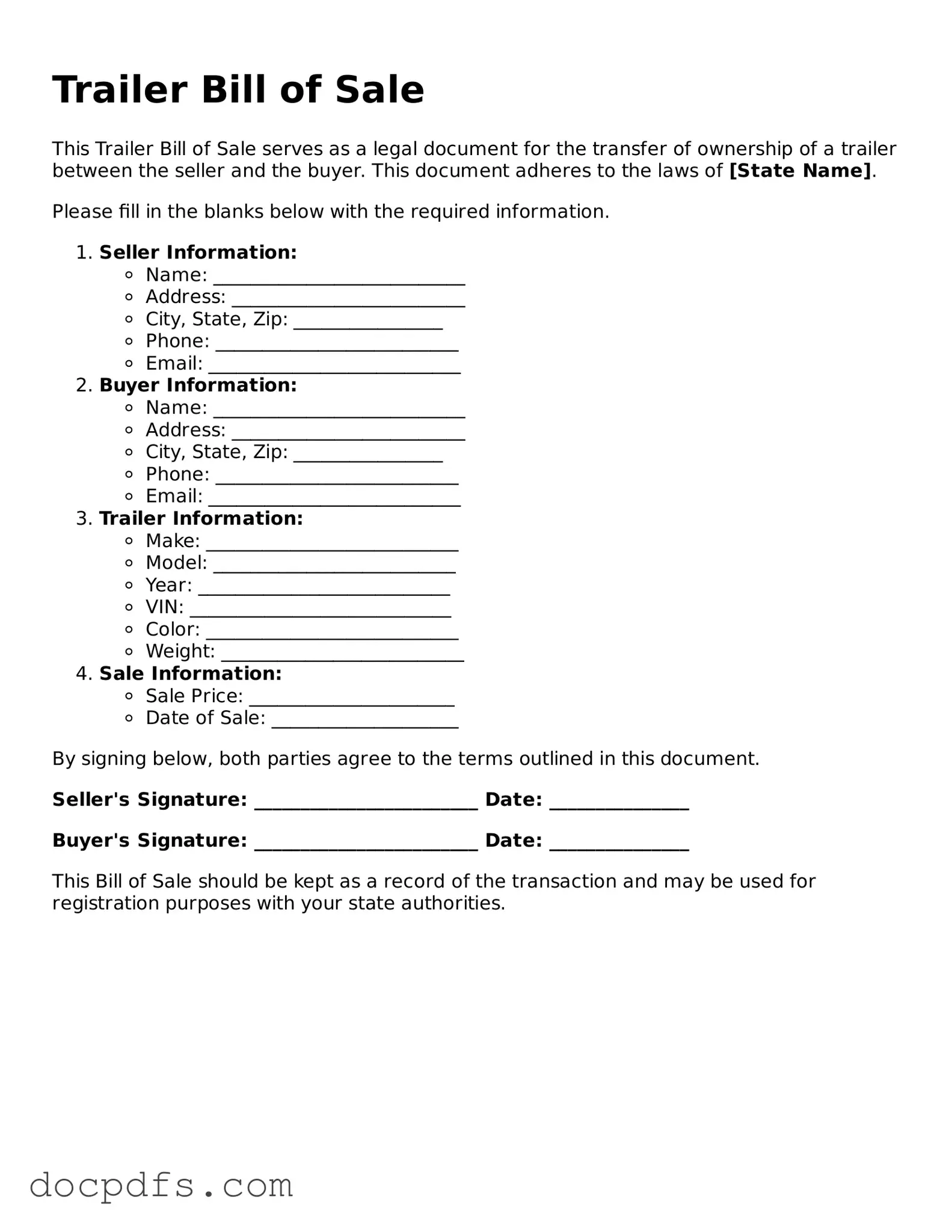Legal Trailer Bill of Sale Document
A Trailer Bill of Sale form is a legal document that facilitates the transfer of ownership of a trailer from one party to another. This form serves as proof of the transaction and includes essential details about the trailer, such as its identification number and sale price. Understanding its importance can help ensure a smooth transfer process and protect the interests of both the buyer and seller.
Open Trailer Bill of Sale Editor Now

Legal Trailer Bill of Sale Document
Open Trailer Bill of Sale Editor Now

Open Trailer Bill of Sale Editor Now
or
⇓ Trailer Bill of Sale
Finish this form the fast way
Complete Trailer Bill of Sale online with a smooth editing experience.